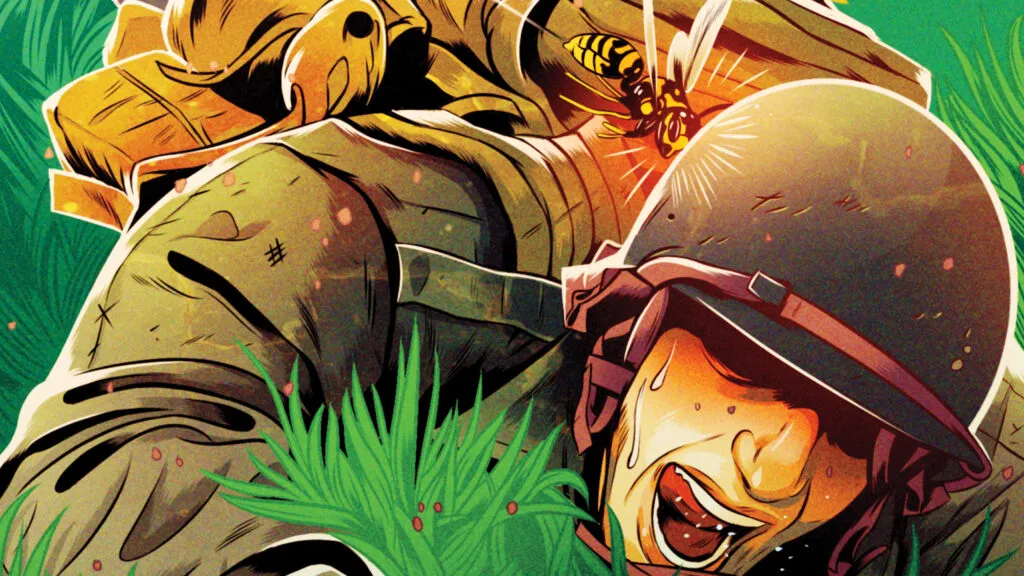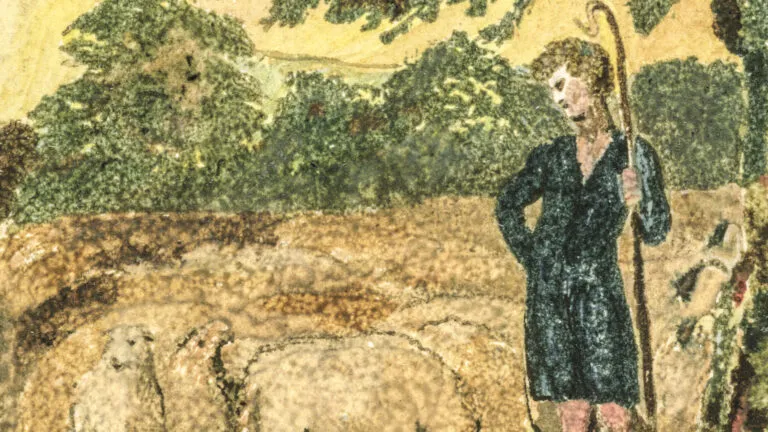My father-in-law, Jim Matis, was a natural storyteller. He loved regaling his friends with tales, drawing them in with quick jokes and easy conversation.
His favorite stories were about his time in World War II. Like so many young men of his generation, he’d enlisted in the Army after the attack on Pearl Harbor and shipped out to Europe. He spoke of adventure, camaraderie and bravery.
I myself experienced the devastation that had engulfed Europe. My family was living in the Sathmar region of Romania when the war broke out. We spent the next few years struggling to survive. Looking back, it is incredible to think that my future father-in-law was a part of the Allied forces, fighting not 30 miles from where my family sat huddled in a refugee camp. Eventually we would make it to America.
At family gatherings, however, Jim’s war stories were few and far between. His wife—my mother-in-law—hated hearing anything about the war. It brought back painful memories of a time when she worried he wouldn’t make it home alive. Jim respected his wife’s wishes. He never mentioned the war when my mother-in-law was in earshot. We didn’t hear much about his WWII service until after she passed away.
On Jim’s eightieth birthday, we planned a big celebration for him, just as he’d wanted. We rented out a banquet hall and hired caterers. Toward the end of the evening, Jim gathered us all to make a toast. And to tell us a story.
Jim’s unit—the 92nd Signal Battalion—was part of General Omar Bradley’s First Army. They were the ones who stormed the beaches of Normandy, France, on June 6, 1944. D-day. The success of that mission was a miracle. And though Jim hadn’t been a part of that initial wave, he experienced a miracle of his own in Normandy.
Jim was attached to the Battalion Headquarters Company, which had been assigned to set up long-range communications. They landed on the beach, where so many had died mere days before, then traveled inland, picking their way through the infamous, sloping hedgerows of the French countryside.
They were just preparing to set up a radio tower when they came under enemy fire.
“Hit the dirt!” a commanding officer shouted. “We’ve arrived at the party!”
The men dropped to the ground. There was a ditch nearby. Some soldiers ran to it; others crawled. Anything to take cover from the attack. Bullets whizzed past, splattering mud as they went. Jim’s unit hadn’t been too far behind the battlefront, but they hadn’t expected to encounter enemy troops so soon. There were shouts. Cries of pain.
They say you never see the shot that takes you down. But Jim saw it. A bullet, speeding toward him. He closed his eyes and ducked. Not fast enough. White-hot pain exploded in the back of his head. The force of it rattled his teeth.
This is it, he thought. I’ve been hit.
The sounds of the battle muted. Time stopped. Swimming before his eyes was the image of his wife and baby daughter, Frances. They were back home, waiting for him.
In that moment, Jim prayed. He prayed harder and more earnestly than he’d ever prayed in his life. I can’t die here, he told God. I need to see them again.
Jim continued to pray until the gunfire died down and the all clear was given. The pain was still pulsing at the back of his head. He was afraid to remove his helmet, scared that it was the only thing still holding his skull together. But he needed to know how bad the wound was. Bracing himself, Jim sat up and took the helmet off.
There was no blood. Jim placed a tentative hand to the part of his head where the pain bloomed sharpest. He could feel something protruding from the skin. Jim thought he was going to be sick—then the thing started to move.
In a blind panic, Jim yanked it free. He blinked at it, confused. Because there, between his fingers, was a bug. No—not just a bug—a huge yellow jacket. It was dead but not before it had stung him in the back of the head.
Jim didn’t receive medical attention right away. There were many others who were badly wounded, and the field hospital was swamped. It wasn’t until two days later that Jim was finally seen by a doctor. In that time, his face had swollen so much, he could barely swallow. The wasp’s stinger was buried deep in the skin and needed to be cut out.
“I still have the scar,” Jim said to the hushed party, all those decades later. “It’s the only thing I have to prove it happened. Because I can’t explain it. I know people will say that it was just a bee sting, that I was never shot, but I disagree. I know that God was with me that day. That he heard my prayer. And somehow he transformed that bullet into a bee.”
Jim has since passed, but this story has stuck with me. He was never able to prove that what he experienced did happen, but that didn’t really matter, because it was real and transformative to him. It changed his relationship with God.
And as for me, his story showed how easily things could have wound up different. That everything turned out the way they did—that a little boy who was in a WWII refugee camp grew up, moved to the United States and fell in love with the daughter of an Allied soldier who maybe almost didn’t make it home—that’s a miracle all its own.





